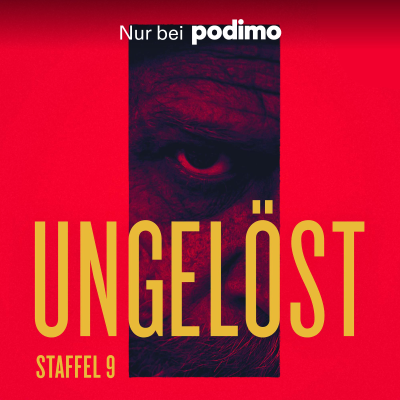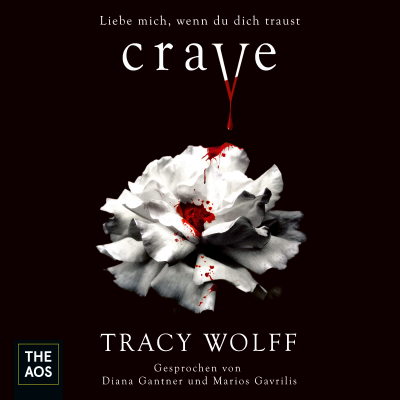
Medieval LOLs
Englisch
Kostenlos bei Podimo
Kostenlos hören bei Podimo
Starte jetzt und verbinde dich mit deinen Lieblingspodcaster*innen
- Vertraut von über 1 Mio. deutschen Hörer*innen
- Über 1.000 lokale Podcasts und Shows – nur bei Podimo
- Keine Zahlung nötig
Mehr Medieval LOLs
Were the Middle Ages funny? To answer that question, Mary Wellesley and Irina Dumitrescu hunt through some of the rudest, silliest and surprising works in English literature in search of the Medieval sense of humour. Mary Wellesley and Irina Dumitrescu are both writers and historians, and regular contributors to the London Review of Books. Sign up to listen to this series ad free and all our subscriber series in full, including Mary and Irina's twelve-part series Medieval Beginnings: Directly in Apple Podcasts: https://lrb.me/medlolapplesignup In other podcast apps: https://lrb.me/medlolscsignup Get in touch: podcasts@lrb.co.uk Hosted on Acast. See acast.com/privacy for more information.
Alle Folgen
12 FolgenGwerful Mechain’s ‘Ode to the Vagina’
For the final episode of their series in search of the medieval sense of humour Irina and Mary look at one of the most remarkable women authors of the Middle Ages, Gwerful Mechain, who lived in Powys in the 15th century. Mechain was part of a lively literary coterie in northeast Wales and in her poem Cywydd y Cedor (‘Ode to the Vagina’) she challenged the conventional approach of her fellow male poets to praise every part of a woman’s body apart from her genitalia. Her witty, combative verses, intended for public performance, deployed a brilliant mastery of the complex metrical tradition of medieval Welsh poetry to discuss the most intimate physical experiences. Non-subscribers will only hear an extract from this episode. To listen in full, and to all our other Close Readings series including Mary and Irina's twelve-part series Medieval Beginnings, sign up: Directly in Apple Podcasts: https://lrb.me/medlolapplesignup In other podcast apps: https://lrb.me/medlolscsignup Get in touch: podcasts@lrb.co.uk
'Tales of Count Lucanor' by Juan Manuel
If you’re looking for advice on sustaining a marriage, or robbing a grave, or performing liver surgery, then a series of self-help stories by a 14th-century Spanish prince is a good place to start. Tales of Count Lucanor, written between 1328 and 1335 by Prince Juan Manuel of Villena, is one of the earliest works of Castilian prose. The tales follow the familiar shape of many medieval stories, presented as a kind of medicine to improve the lives of its readers by example. Yet in his preface Manuel makes an unusual assertion about the individuality of all people, a philosophy that, as Mary and Irina discuss in this episode, leads to bizarre and opaque moral messages intended more to make the reader think for themselves than reach a universal conclusion. Find a translation of the Tales here: https://elfinspell.com/CountLucanor1.html [https://elfinspell.com/CountLucanor1.html] Non-subscribers will only hear an extract from this episode. To listen in full, and to all our other Close Readings series including Mary and Irina's twelve-part series Medieval Beginnings, sign up: Directly in Apple Podcasts: https://lrb.me/medlolapplesignup [https://lrb.me/medlolapplesignup] In other podcast apps: https://lrb.me/medlolscsignup [https://lrb.me/medlolscsignup] Get in touch: podcasts@lrb.co.uk Hosted on Acast. See acast.com/privacy [https://acast.com/privacy] for more information.
Boccaccio’s ‘Decameron’: Part Two
Mary and Irina resume their discussion of Boccaccio’s Decameron, focusing on three stories of female agency, deception and desire. Alibech, an aspiring hermitess, is tricked into indulging her powerful sexual urges; Petronella combines business and pleasure at the expense of her husband and lover; while Lydia demonstrates her devotion by killing hawks and pulling teeth. As Mary and Irina discuss, these stories exemplify the ambiguous depiction of women in the Decameron, where the world is powered by rapacious female lusts, sex has no consequences and conventional morality is suspended. Read more on the Decameron in the LRB: https://lrb.me/decameronpod [https://lrb.me/decameronpod] Non-subscribers will only hear an extract from this episode. To listen in full, and to all our other Close Readings series including Mary and Irina's twelve-part series Medieval Beginnings, sign up: Directly in Apple Podcasts: https://lrb.me/medlolapplesignup [https://lrb.me/medlolapplesignup] In other podcast apps: https://lrb.me/medlolscsignup [https://lrb.me/medlolscsignup] Get in touch: podcasts@lrb.co.uk Hosted on Acast. See acast.com/privacy [https://acast.com/privacy] for more information.
Boccaccio's 'Decameron': Part One
In the preface to the Decameron Boccaccio describes Florentine society laid waste by bubonic plague in the mid-14th century. But before he gets to that he has a confession for the reader: he has been hurt by love, a love ‘more fervent than any other love’, and intends his work as a guide to life and love for young women in particular. In the first of two episodes on Boccaccio’s hundred novelle of sex, dishonesty and foolishness, Mary and Irina consider why both the preface and first story – about the disreputable merchant Cepparello – start with a confession, before looking at the later tale of the gardener Masetto and his noble efforts tending to the needs of every nun in a convent in Lamporecchio. Non-subscriber will only hear extracts from most of the episodes in this series. To listen in full, and to all our other Close Readings series including Mary and Irina's twelve-part series Medieval Beginnings, sign up: Directly in Apple Podcasts: https://lrb.me/medlolapplesignup [https://lrb.me/medlolapplesignup] In other podcast apps: https://lrb.me/medlolscsignup [https://lrb.me/medlolscsignup] Get in touch: podcasts@lrb.co.uk Hosted on Acast. See acast.com/privacy [https://acast.com/privacy] for more information.
Sir Gawain and the Carle of Carlisle
The character of Gawain, one of King Arthur’s leading knights, recurs throughout medieval literature, but the way he’s presented underwent a curious development during the period, moving closer and closer to an impossible and perhaps comical ideal of chivalric perfection. In 'Sir Gawain and the Greene Knight', his most well-known incarnation, Gawain faces a series of peculiar tests and apparently fails them all. 'Sir Gawain and the Carle of Carlisle', a later poem, takes many elements from 'The Greene Knight' and exaggerates them to the extreme: the cups the knights drink from are so large they’re impossible to drink from, and Gawain faces an even more peculiar sequence of tests, but meets them all perfectly. Irina and Mary discuss the degree to which this exaggeration can be taken as a satire on chivalric expectations, and whether by this point the character of Gawain should be considered more monastic than knightly. Read the text here: https://d.lib.rochester.edu/teams/text/hahn-sir-gawain-sir-gawain-and-the-carle-of-carlisle [https://d.lib.rochester.edu/teams/text/hahn-sir-gawain-sir-gawain-and-the-carle-of-carlisle] Read some Arthurian background in the LRB here: https://www.lrb.co.uk/the-paper/v40/n24/tom-shippey/so-much-smoke [https://www.lrb.co.uk/the-paper/v40/n24/tom-shippey/so-much-smoke] Non-subscriber will only hear an extract from this episode. To listen in full, and to all our other Close Readings series including Mary and Irina's twelve-part series Medieval Beginnings, sign up: Directly in Apple Podcasts: https://lrb.me/medlolapplesignup [https://lrb.me/medlolapplesignup] In other podcast apps: https://lrb.me/medlolscsignup [https://lrb.me/medlolscsignup] Get in touch: podcasts@lrb.co.uk Hosted on Acast. See acast.com/privacy [https://acast.com/privacy] for more information.















































